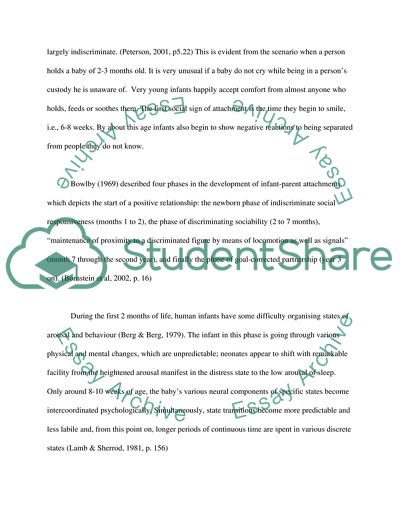Cite this document
(“Infants Social Relationships Essay Example | Topics and Well Written Essays - 2000 words”, n.d.)
Retrieved from https://studentshare.org/sociology/1538434-why-are-the-first-two-years-of-a-childs-life-seen-as-important-in-the-development-of-positive-relationships
Retrieved from https://studentshare.org/sociology/1538434-why-are-the-first-two-years-of-a-childs-life-seen-as-important-in-the-development-of-positive-relationships
(Infants Social Relationships Essay Example | Topics and Well Written Essays - 2000 Words)
https://studentshare.org/sociology/1538434-why-are-the-first-two-years-of-a-childs-life-seen-as-important-in-the-development-of-positive-relationships.
https://studentshare.org/sociology/1538434-why-are-the-first-two-years-of-a-childs-life-seen-as-important-in-the-development-of-positive-relationships.
“Infants Social Relationships Essay Example | Topics and Well Written Essays - 2000 Words”, n.d. https://studentshare.org/sociology/1538434-why-are-the-first-two-years-of-a-childs-life-seen-as-important-in-the-development-of-positive-relationships.


